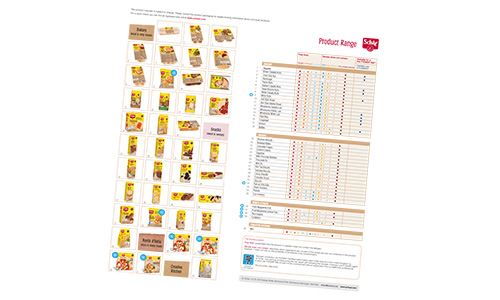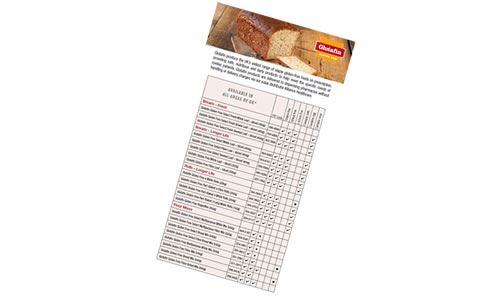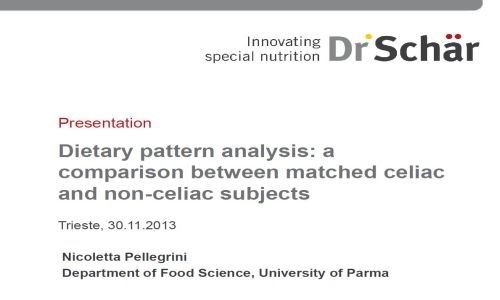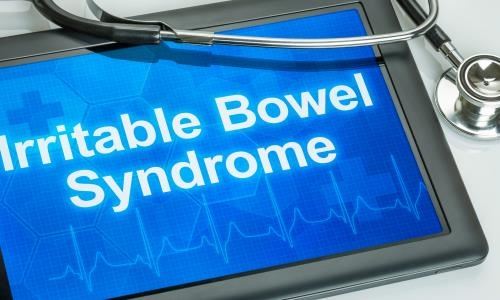Gluten-free and wheat-free diets as therapy

A gluten free diet is the only available treatment for the management of coeliac disease and non-coeliac gluten sensitivity. Wheat allergy requires the implementation of a wheat free diet, whereby all wheat-derived ingredients are avoided.
In order to ensure an accurate diagnosis, it is imperative that the patient does not initiate a gluten-free diet until a final diagnosis is obtained. Currently the only treatment for coeliac disease is lifelong strict adherence to a gluten-free diet. Strict adherence to the diet and careful monitoring of ingredients, food preparation, and reading of labels will help avoid any potential cross contamination and unintentional ingestion of gluten. In the case of non-coeliac gluten sensitivity, the initial treatment is a gluten-free diet. After a period of time following a gluten-free diet, individuals with non-coeliac gluten sensitivity may choose to consider reintroducing a small amount of gluten in to their diet under the guidance of a healthcare professional team. Those patients with a diagnosis of wheat allergy will require a wheat free diet but may be able to consider reintroduction at a later date, under the supervision of their healthcare professional team, depending on the nature and severity of their symptoms.
Implementation of a gluten-free or wheat-free diet by diagnosis
| Celiac disease | Gluten/wheat sensitivity | Wheat allergy | |
|---|---|---|---|
| Duration | Lifelong | Potentially limited time - at least one to two years | Potentially limited time |
| Special features | Strict gluten-free | With medical supervision a low-gluten may then be sufficient | Adjunctive medication may be necessary |
Gluten-free diet for coeliac disease
Currently the only therapy for coeliac disease is a strict lifelong gluten-free diet. If coeliac disease is not treated, it can lead to the development of other conditions, secondary symptoms, and increased risk of long term complications. Regular follow-ups with a health care professional are recommended to assess any changes that would affect the overall health and quality of life of the patient and prevent any nutritional deficiencies and complications.
Consultation with a specialist dietitian is the key to health and compliance
The transition to a gluten-free diet, may seem daunting for patients at first. A consultation with a suitably experienced dietitian is the key to health and compliance with the gluten-free dietary pattern. The dietitian will be able to guide patients through the transition to a healthy gluten-free diet. The session should include an in-depth assessment of current intake patterns. Tailoring advice to suit food preferences, dining out and social eating patterns is crucial in order to individualise recommendations for patients and their families. Practical resources and materials should be provided to patients in order to support compliance. For younger patients, the education and support offered might need to extend further, including consideration of other care givers – e.g nursery, school, college, friends and extended family.
Suggested points to discuss during initial dietetic consultation/s
- Confirm diagnosis - has a definite diagnosis been made, when and how?
- Other relevant medical history
- Explanation of diagnosis to reduce anxiety, provide reassurance and increase understanding
- What is coeliac disease?
- Advantages of a gluten-free diet and disadvantages of non-compliance
- Recommend membership of Coeliac UK
- Assessment of nutritional status and current diet
- Weight, height and BMI
- Results of blood analysis of vitamin/ mineral status
- Dexa scan
- Diet history
- Discussion of gluten free diet:
- foods to include, foods to avoid, foods to check
- reading food labels
- General healthy eating advice
- Gluten free foods on prescription – what’s available and how to access this
- Provide manufacturers contact information - advice on obtaining free samples
- Advice for eating out/away from home
- Avoiding cross-contamination
Annual review
NICE Clinical Guidelines recommend that all coeliac patients are offered an annual review during which they should be provided with specialist dietetic and nutritional advice [1].
Suggested topics for discussion at dietetic review appointment/s
- Review of symptoms and response to treatment so far
- Consideration of additional food intolerances – management advice as appropriate
- Monitoring of nutritional status and dietary adequacy – advise as appropriate
- Weight, BMI
- Diet history
- Address any general questions and concerns
- Food labelling re-cap
- Advice for special occasions & travel
- Gluten free cooking/backing tips and advice
References
- NICE Guideline NG20: Recognition, Assessment & Management of Coeliac Disease. National Institute of Clinical Excellence 2015.
Further information on this topic
Download
2
Show all
Professional articles
4
Show all
Presentations
1
Show all
Studies
3
Show all

Schar Pocket Sized Product Guide
A complete list of our Schär gluten free retail range, including allergen information, low FODMAP suitability and retailer listings.

Glutafin - Key Product Information and Ordering Codes
A comprehensive list of Glutafin products with their specific ordering codes, units per case, pack sizes, whether they are gluten free or gluten & wheat free, and key nutritional information.

Schar Pocket Sized Product Guide
A complete list of our Schär gluten free retail range, including aller...

Glutafin - Key Product Information and Ordering Codes
A comprehensive list of Glutafin products with their specific ordering...

Disordered Eating Attitudes and Behaviours in Coeliac Disease
Food labelling, the comparatively high cost of gluten-free foods and the difficulties associated with eating gluten-free outside the home influence the lives of people with Coeliac Disease (CD). For some, following the gluten-free diet (GFD) can lead to an increased risk of disordered eating attitudes and behaviours.
>> Read more... <<<
>> Read more... <<<

Gut Microbiota in Health and Disease
As new evidence and better analytical techniques emerge, more information is becoming available about our gut bacteria. It is becoming clear that the type and relative amount of bacteria present in our gut plays an important role in both health and disease.
>> Read more... <<<
>> Read more... <<<

The Influence of the Microbiome on Gluten-Related Disorders
This short article provides an overview of the differences in microbiota which exist in gluten-related disorders, with a particular focus on coeliac disease. It goes on to outline a planned controlled prospective study which examines changes in intestinal microflora in patients with wheat sensitivity.
>> Read more... <<<
>> Read more... <<<

The importance of the microbiota in the pathogenesis and treatment of coeliac disease
The importance of intestinal microbiota and role of probiotics is well documented in some clinical scenarios and conditions, for example, antibiotic-associated diarrhoea, irritable bowel syndrome. However, there are currently few studies on the relationship between coeliac disease and microbiota. This article looks to address and summarise the current knowledge base within this specific area.
>> Read more... <<<
>> Read more... <<<

Disordered Eating Attitudes and Behaviours in Coeliac Disease
Food labelling, the comparatively high cost of gluten-free foods and t...

Gut Microbiota in Health and Disease
As new evidence and better analytical techniques emerge, more informat...

The Influence of the Microbiome on Gluten-Related Disorders
This short article provides an overview of the differences in microbio...

The importance of the microbiota in the pathogenesis and treatment of coeliac disease
The importance of intestinal microbiota and role of probiotics is well...

Dietary pattern analysis: a comparison between matched celiac and non-celiac subjects (2013)
Nicoletta Pellegrini
Associate Professor
Department of Food Science, University of Parma, Italy
International Symposium "10 years of research in gluten-free food and future prospects", 30.11.2013, AREA Science Park, Trieste (Italy)
Associate Professor
Department of Food Science, University of Parma, Italy
International Symposium "10 years of research in gluten-free food and future prospects", 30.11.2013, AREA Science Park, Trieste (Italy)

Dietary pattern analysis: a comparison between matched celiac and non-celiac subjects (2013)
Nicoletta Pellegrini
Associate Professor
Department of Food Science,...

Long- term response to gluten-free diet as evidence for non-celiac wheat sensitivity in one third of patients with diarrhoea- dominant and mixed-type irritable bowel syndrome
The aim of the study was to analyse if HLA-DQ2 and DQ8 are suitable markers for the diagnosis of wheat sensitivity (WS) and to evaluate the long-term clinical response to a GFD in a defined cohort of patients with IBS-D and IBS-M.
>>Read more<<
>>Read more<<

New NICE Quality Standard on Coeliac Disease supports the provision of gluten-free food on prescription
The National Institute of Health and Care Excellence (NICE) has launched its first Quality Standard on coeliac disease, aiming to drive measurable improvements in the diagnosis, support and health of people with coeliac disease. It also identifies the need to address health inequalities.
>>Read more<<
>>Read more<<

Diet low in FODMAPs reduces symptoms of irritable bowel syndrome as well as traditional dietary advice: A randomized control trial
There are a number of clinical trials to support the observation that a reduction in dietary FODMAPs is beneficial for IBS patients, but so far no randomised control trial has demonstrated that a low-FODMAP diet is superior to the traditional or ‘first line’ dietetic advice that is commonly offered to IBS patients. The aim of this multi-centre, parallel, randomised, controlled trial was to compare the effect on IBS symptoms of a low-FODMAP diet compared with traditional dietary advice in single-blinded fashion amongst outpatients with IBS in a setting resembling normal clinical practice.
Patients were recruited via local newspaper advertisement. Those with GI disease other than IBS (e.g coeliac disease, IBD) were excluded, alongside patients following a diet that excessively restricted certain nutrients (e.g low FODMAP, gluten free, vegan etc). Seventy five patients were selected as suitable and entered the study, all of whom met the Rome III criteria for IBS, These patients were randomly assigned to two groups and commenced either a low FODMAP diet (n=38) or a diet frequently recommended for IBS with greater emphasis on how and when to eat rather than on what foods to ingest (n=37), patients were asked to follow these diets for 4 weeks. Symptom severity was assessed using the IBS Symptom Severity Scale (IBS SSS) and patients completed a 4-day food diary before and at the end of the intervention. Patients received thorough verbal instructions from one of three study dietitians regarding the diet they would need to consume. They were also provided with a brochure containing further supportive information, designed specifically for the study. All of the dietitians had previous experience of working with IBS patients and thorough knowledge about FODMAPs and general IBS dietary advice. The term ‘FODMAPs’ was not used during dietetic consultations and patients were simply advised to follow ‘diet A’ or ‘diet B’. It was felt that the use of the term ‘FOMDAP’s may have introduced an unwanted placebo effect based on the recent publicity associated with this approach and the resulting high expectations of patients. The traditional IBS diet prescribed implied a greater focus on how and when to eat rather than on what to eat. The diet was based on first line IBS dietary recommendations from NICE and the British Dietetic Association. Specifically the participants in the traditional dietary advice group were instructed to:
• Regularly eat 3 meals and 3 snacks a day, never too much or too little each time
• Never be hungry or too full
• Eat in peace and quiet and chew thoroughly
• Reduce intake of fatty or spicy foods, coffee, alcohol, onions, cabbage and beans
• Avoid soft drinks and carbonated beverages, chewing gums and sweeteners that end with –ol
• Eat fibre but distribute the intake evenly during the day
Sixty seven patients completed the dietary intervention (33 completed low FODMAP diet and 34 completed the traditional IBS diet). The severity of IBS symptoms was reduced in both groups (P<0.0001) at the end of the 4-week diet, without a significant difference between the groups (p=0.62). At the end of the trial, 19 patients (46%) in the low FODMAP group had reductions in IBS SSS of ≥ 50, compared to baseline, v’s 17 patients (46%) in the traditional IBS advice group (p=0.72). Food diaries and nutrient intake assessment (via nutrient analysis programme DIETIST XP v3.1) demonstrated good adherence to dietary advice in both groups.
The authors of this study concluded that both diets improved IBS symptoms, without any clear differences between the two approaches, therefore combining elements of both diets may have the potential to further reduce symptoms. Providing a customised dietary treatment approach based on patient experience of which foods are already known to be triggers for symptoms, or testing for the presence of carbohydrate malabsorption at baseline could be beneficial. Future studies should also more clearly investigate the different impacts of individual FODMAPs on symptoms.
Resource: Gastroenterology 2015; 149:1399-1407
Patients were recruited via local newspaper advertisement. Those with GI disease other than IBS (e.g coeliac disease, IBD) were excluded, alongside patients following a diet that excessively restricted certain nutrients (e.g low FODMAP, gluten free, vegan etc). Seventy five patients were selected as suitable and entered the study, all of whom met the Rome III criteria for IBS, These patients were randomly assigned to two groups and commenced either a low FODMAP diet (n=38) or a diet frequently recommended for IBS with greater emphasis on how and when to eat rather than on what foods to ingest (n=37), patients were asked to follow these diets for 4 weeks. Symptom severity was assessed using the IBS Symptom Severity Scale (IBS SSS) and patients completed a 4-day food diary before and at the end of the intervention. Patients received thorough verbal instructions from one of three study dietitians regarding the diet they would need to consume. They were also provided with a brochure containing further supportive information, designed specifically for the study. All of the dietitians had previous experience of working with IBS patients and thorough knowledge about FODMAPs and general IBS dietary advice. The term ‘FODMAPs’ was not used during dietetic consultations and patients were simply advised to follow ‘diet A’ or ‘diet B’. It was felt that the use of the term ‘FOMDAP’s may have introduced an unwanted placebo effect based on the recent publicity associated with this approach and the resulting high expectations of patients. The traditional IBS diet prescribed implied a greater focus on how and when to eat rather than on what to eat. The diet was based on first line IBS dietary recommendations from NICE and the British Dietetic Association. Specifically the participants in the traditional dietary advice group were instructed to:
• Regularly eat 3 meals and 3 snacks a day, never too much or too little each time
• Never be hungry or too full
• Eat in peace and quiet and chew thoroughly
• Reduce intake of fatty or spicy foods, coffee, alcohol, onions, cabbage and beans
• Avoid soft drinks and carbonated beverages, chewing gums and sweeteners that end with –ol
• Eat fibre but distribute the intake evenly during the day
Sixty seven patients completed the dietary intervention (33 completed low FODMAP diet and 34 completed the traditional IBS diet). The severity of IBS symptoms was reduced in both groups (P<0.0001) at the end of the 4-week diet, without a significant difference between the groups (p=0.62). At the end of the trial, 19 patients (46%) in the low FODMAP group had reductions in IBS SSS of ≥ 50, compared to baseline, v’s 17 patients (46%) in the traditional IBS advice group (p=0.72). Food diaries and nutrient intake assessment (via nutrient analysis programme DIETIST XP v3.1) demonstrated good adherence to dietary advice in both groups.
The authors of this study concluded that both diets improved IBS symptoms, without any clear differences between the two approaches, therefore combining elements of both diets may have the potential to further reduce symptoms. Providing a customised dietary treatment approach based on patient experience of which foods are already known to be triggers for symptoms, or testing for the presence of carbohydrate malabsorption at baseline could be beneficial. Future studies should also more clearly investigate the different impacts of individual FODMAPs on symptoms.
Resource: Gastroenterology 2015; 149:1399-1407

Long- term response to gluten-free diet as evidence for non-celiac wheat sensitivity in one third of patients with diarrhoea- dominant and mixed-type irritable bowel syndrome
The aim of the study was to analyse if HLA-DQ2 and DQ8 are suitable ma...

New NICE Quality Standard on Coeliac Disease supports the provision of gluten-free food on prescription
The National Institute of Health and Care Excellence (NICE) has launch...

Diet low in FODMAPs reduces symptoms of irritable bowel syndrome as well as traditional dietary advice: A randomized control trial
There are a number of clinical trials to support the observation that ...
www.drschaer-institute.com
